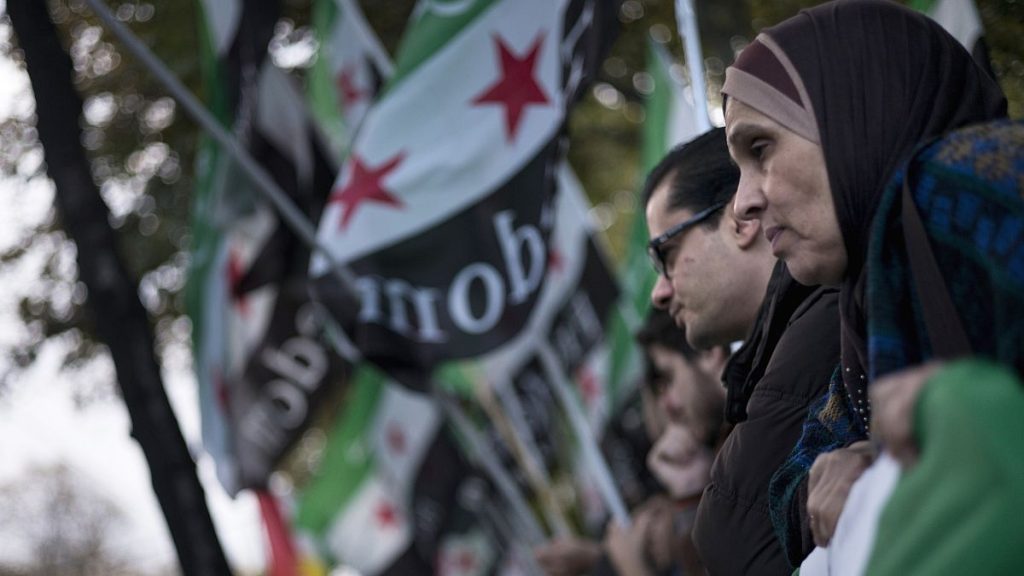The unfolding situation in Syria, marked by the recent collapse of Bashar al-Assad’s regime, has ignited discussions across Europe concerning the future of Syrian refugees currently residing within EU member states. Austria has taken a prominent stance in this debate, announcing a “return bonus” of €1,000 for Syrian refugees willing to repatriate. This initiative, spearheaded by Chancellor Karl Nehammer, reflects the growing pressure on European leaders, particularly from right-wing factions, to adopt stricter immigration policies. While the Austrian government emphasizes the voluntary nature of these returns, the backdrop of the volatile security situation in Syria raises concerns about the feasibility and safety of such repatriations. The European Commission, along with several member states, including Germany, maintains that conditions in Syria are currently unsuitable for safe and dignified returns.
The Austrian government’s decision to offer a financial incentive for repatriation underscores a broader shift in European discourse surrounding refugee integration and repatriation. While the initial influx of Syrian refugees in 2015 prompted a humanitarian response across much of Europe, the political landscape has evolved. The large number of asylum seekers strained resources and exacerbated existing anxieties related to national identity and cultural integration. This has paved the way for a more restrictive approach to asylum policies, with several countries, including Austria, halting the processing of new Syrian asylum applications. This move mirrors similar actions taken by other European nations, signaling a growing reluctance to accommodate further refugee flows.
The legality and ethical implications of incentivizing returns under precarious circumstances remain a subject of intense debate. International human rights organizations, alongside the UN’s refugee agency, caution against premature repatriations, emphasizing the need for thorough assessments of the security and human rights situation in Syria. While the Austrian government insists that deportations will not be enforced until conditions improve, critics argue that offering financial incentives could indirectly pressure vulnerable refugees to return to a potentially unsafe environment. The €1,000 bonus, while seemingly substantial, may be insufficient to cover the logistical challenges and costs associated with rebuilding a life in a war-torn country. Furthermore, the lack of direct flights from Austria to Syria adds another layer of complexity to the repatriation process.
The European Commission’s firm stance against premature returns highlights the ongoing tension between individual member states’ immigration policies and the EU’s broader humanitarian commitments. While national governments grapple with domestic pressures to limit immigration, the EU as a whole faces the challenge of upholding its principles of human rights and refugee protection. The Commission’s assessment that conditions in Syria are not conducive to safe returns underscores the need for a coordinated European approach to the refugee crisis, one that prioritizes the safety and well-being of vulnerable populations. The diverging perspectives of individual member states, however, complicate the prospect of achieving a unified strategy.
The proposal of incentivized returns for Syrian refugees mirrors similar discussions emerging in other European countries. Jens Spahn, the former German Health Minister, recently suggested a similar program in Germany, further illustrating the growing momentum behind repatriation initiatives. The resurgence of such proposals reflects a broader shift in public opinion across Europe, fueled by economic anxieties, security concerns, and a perceived strain on social welfare systems. The debate underscores the complexities of balancing humanitarian obligations with domestic political realities. The long-term consequences of these policies, however, remain uncertain, particularly given the volatile and unpredictable situation in Syria.
The future of Syrian refugees in Europe hangs in the balance as the continent grapples with the evolving political landscape and the ongoing crisis in Syria. The Austrian government’s decision to offer a return bonus marks a significant turning point in the refugee debate, highlighting the growing pressure on European nations to prioritize repatriation. However, the feasibility and ethical implications of such policies remain deeply contested. The international community, along with human rights organizations, continues to advocate for a cautious approach, emphasizing the need for comprehensive assessments of the situation in Syria before promoting large-scale returns. The coming months will likely witness further debate and policy adjustments as European nations grapple with the complex challenge of balancing domestic interests with their humanitarian commitments.














